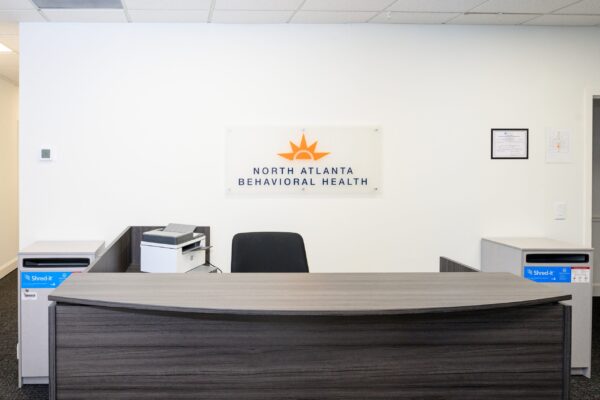Table of Contents
Mental Health Self-Assessments

Childhood Trauma Test (ACEs)
Childhood trauma, also called adverse childhood experiences (ACEs), can impact your mental and emotional health later in life. Take our assessment today to learn more about the effects that childhood trauma has on your mental health.
The Importance of an Accurate Mental Health Diagnosis

A mental health diagnosis is the basis for your treatment plan. Therefore, the more accurate the diagnosis, the more effective the treatment. In other words, when you more accurately define the problem, you are more likely to find the best solution.
The following are the benefits of an accurate mental health diagnosis:
- Effective Medications: Psychiatric medications are one of the most effective ways to treat mental health disorders. Medications can reduce the severity of symptoms—in turn, this helps you participate in other therapeutic activities and increases compliance. However, there are different types of medications for each category of mental health disorders, so getting the right diagnosis is crucial to getting the right medication.
- Helpful Therapeutic Modalities: Not all types of therapy are the same. Your therapist might specialize in a specific modality, which is helpful for one disorder but not another. For instance, dialectical behavior therapy (DBT) is best for those with borderline personality disorder (BPD). On the other hand, EMDR therapy significantly reduces symptoms of post-traumatic stress disorder (PTSD).
- Reduce Stigma: An accurate diagnosis helps you better understand your disorder and symptoms. In addition, your family and loved ones also learn more about your behaviors. In turn, this helps to dispel myths and misinformation about mental health.
- Develop Effective Treatment: An accurate diagnosis helps providers and researchers learn which treatment is best for each disorder. For example, drug trials can help to find new medications for mental health disorders.
What If My Mental Health Disorder Is Misdiagnosed?
Some mental health disorders share symptoms or have overlapping features. For example, both bipolar disorder and attention-deficit/hyperactivity disorder (ADHD) can cause impulsive behaviors, excessive talking, and recklessness.
In other cases, some symptoms are overlooked or not identified. Schizoaffective disorder, for instance, might be misdiagnosed as schizophrenia or a mood disorder. However, a misdiagnosis addresses only half the issue, since schizoaffective disorder has characteristics of both schizophrenia and mood disorders.
Therefore, it’s important to keep track of your symptoms and discuss everything with your doctor or psychiatrist. Sometimes, people don’t think of tracking symptoms that seem unrelated to your mental health. However, mental health disorders can cause physical, social, and emotional issues.
Keeping track of the following can help you avoid a misdiagnosis:
- New symptoms or behaviors
- Losing interest in socializing or engaging in fun activities
- Sleep disturbances
- Changes in appetite
- Lethargy or feeling tired most of the time
- Difficulty concentrating
- Memory problems
- Struggling to make decisions and/or problem-solve
A misdiagnosis can lead to issues like ineffective treatment and worsening conditions. If you are concerned about a misdiagnosis, talk to your healthcare provider about additional symptoms you have. You can also seek a second opinion from another mental health professional.
Self-Assessment vs Clinical Diagnosis
A mental health self-assessment can help you learn more about your own mental health. It might open the door to you seeking treatment or talking to your doctor about symptoms. Oftentimes, when you live with an untreated condition, you don’t realize that your experiences are indicative of a mental health disorder.
However, a self-assessment doesn’t replace the expertise of a mental health professional. While a self-assessment can be valuable, it is not always accurate. And, an expert could observe additional signs and symptoms you don’t notice.
A clinical diagnosis will help you understand the cause of your symptoms and what to do about them. In addition, clinicians can rule out other causes of your symptoms. For instance, sometimes underlying medical issues disrupt your mental health.
Furthermore, insurance carriers require a clinical diagnosis to cover long-term mental health treatment.
Do I Need Mental Health Treatment?
If you’re struggling now, you’re probably wondering if you need mental health treatment. Most often, a significant life event triggers mental health symptoms, such as the death of a loved one, a breakup, or losing your job. When you don’t find healthy ways to deal with your emotions at difficult times, you could develop mental health symptoms as a result.
However, mental health issues can also creep up on you. Sometimes, you don’t notice your mental health is declining and miss the early warning signs. Other times, family members or friends notice a change and call your attention to it.
Remember that if you are questioning your mental health, you are not alone. According to the Centers for Disease Control and Prevention (CDC), “Mental illnesses are among the most common health conditions in the United States” and “[m]ore than 1 in 5 US adults live with a mental illness.”
The following are signs that you or a loved one need mental health treatment:
Emotions and Feelings
- Excessive worry, doubt, guilt, shame, or sadness
- Irritability and being quick to anger
- Mood swings
- Fatigue and low energy
- Life feels overwhelming and unmanageable
Cognitive (Thinking) Issues
- Thoughts of death and dying
- Suicidal ideation (call 988 Suicide & Crisis Lifeline for immediate help)
- Trouble focusing or remembering
- Obsessive thoughts, ideas, or worries
- Racing, confusing, or mixed-up thoughts
- Hallucinations and delusions
Physical Health
- Illness or pain with no medical explanation
- Difficulty sleeping or sleeping too much
- Change in appetite
- Unexpected weight loss or gain
Behavioral Changes
- Drinking or using drugs to cope with stress and mental health
- Problems at work or school (poor performance, absenteeism, tardiness, etc.)
- Legal issues related to behavior or substance abuse
- Not taking care of yourself (ie, sloppy appearance, poor hygiene, skipping medical appointments, etc.)
- Loss of interest in hobbies
Social Wellness and Relationships
- Isolating yourself from family and friends
- Avoiding social activities
- Problems and conflicts in relationships
- Frequent changes in friends

By NABH Staff
Medically Reviewed by
Erika Dalton, LMSW.
Last Updated on March 18, 2024
Get Help Now
Begin Depression Treatment in Atlanta Today
Mental health disorders cannot be treated by treating the symptoms alone. We use holistic and evidence-based methods to treat the entire individual.
Facility Image Gallery
Get Evidence-Based Mental Health Treatment Today
Mental health disorders affect nearly 20% of US adults, according to the CDC. Mental health self-assessments can help guide you as you begin seeking treatment. At North Atlanta Behavioral Health, we offer outpatient mental health programs with individualized care plans and progressive levels of intensity to ensure that you get the help you need.
Contact us today for an evaluation and evidence-based mental health treatment.

Treatment Philosophy
North Atlanta Behavioral Health is dedicated to the health and happiness of our clients. We offer personalized treatment plans that put each individual’s needs first.

Meet Our Team
Our multidisciplinary team wants nothing more than for our clients to achieve a lifetime of recovery and sobriety. Let us help you get the most out of treatment.













 I have been to my fair share of mental health programs and this one was extremely small, intimate and every staff member I have ever had contact with has been completely professional, compassionate, and caring.
I have been to my fair share of mental health programs and this one was extremely small, intimate and every staff member I have ever had contact with has been completely professional, compassionate, and caring.










